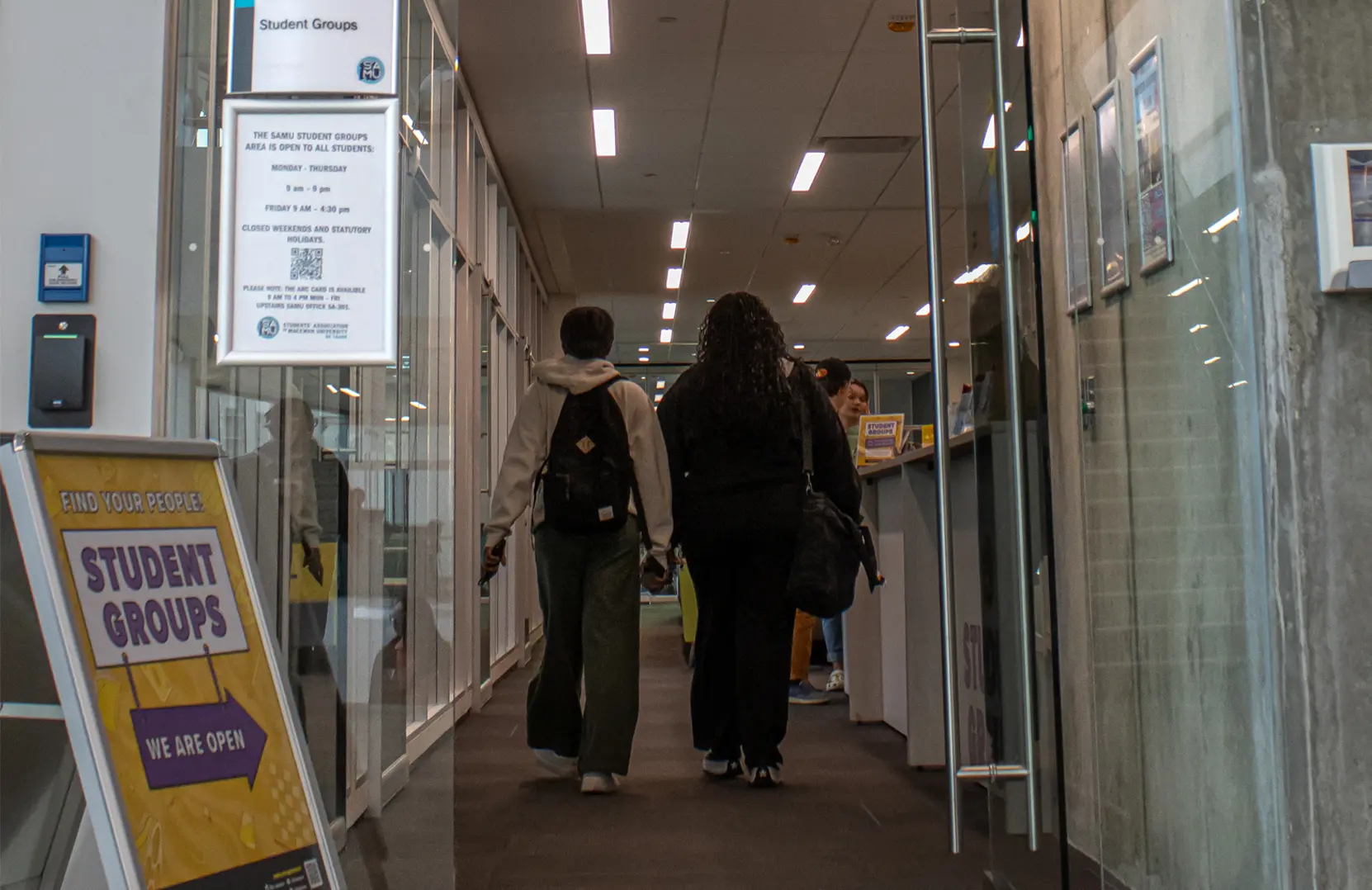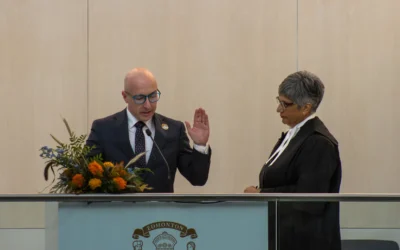The student groups’ entrance in the SAMU building. Amanda Erickson/The Griff
The new rules challenge groups while aiming for fairness.
Amanda Erickson
Photo by Amanda Erickson
Students’ Association of MacEwan University (SAMU) student groups are adjusting to new operational rules. These changes affect funding, executive team size, and event planning, sparking mixed reactions from club members.
One of the biggest shifts is how operational grants are used. Previously, clubs could stretch funding throughout the year, but now money must be spent within ninety days of approval. If unused, the money is taken back and clubs must wait a month before requesting more.
For groups that host major annual events, the change complicates planning. “I’ve heard it’s possible that we can request to keep those grants and extend it to the winter term, but we haven’t tried that yet, as our group is still fairly new,” says Juan Rojas, an executive at large of the Game Dev Club. Rojas adds that their year-end event depends on securing money for equipment, prizes, and merchandise.
SAMU president Nathan Poon says the shorter timeline was designed to create fairness. “By sort of splitting up the timelines, we can allow groups who form sort of in the winter semester or in the late fall semester to have a fair chance of achieving an operating grant,” says Poon.
“If they feel that there is a policy change that is required, they’re free to always come to the procedure subcommittee to review it with us, and we’ll review if it is in the best interest of students.”
— Nathan Poon, president of SAMU
Another change caps executive teams at eleven members. While the Game Dev Club’s nine executives fall below this threshold, larger groups face direct impacts.
“We currently have, technically, I want to say thirteen to fourteen execs,” says the president of the MacEwan University Dance Club (MUDC), Jade Wong. The club counts “shadows” — members preparing for future roles — as executives. Since the rule came after the MUDC held its elections in the spring, they had two choices: hold elections again, or have people step down. Instead, the group plans to reclassify some members. “Since we have shadows, it would make sense for those shadows to step down and be labelled as volunteers,” says Wong, noting that they will now hold the title of executive associate.
Wong adds that the workload makes it impossible to restructure mid-year. “We started planning our club stuff like two months ago, like in the summer.”
Poon says the cap on executives was recommended by the student groups department of SAMU to improve accountability and decision-making, since large boards can struggle to function effectively.
Other changes affect event hosting. Clubs must now hire external security for events with alcohol, rather than relying on campus security. “I understand that like now, we can actually book events at Towers, which is great,” says Rojas. “But our issue with that is that if we have to hire security just for some people who want to drink, that kind of defeats the purpose and the point of the funding we’re having for only 90 days.”
Student groups can also now advertise on SAMU’s televisions and are allowed to use volunteers for event support. “We want to make sure that student groups have as many resources as possible to succeed,” says Poon. He explains the policy acknowledges the financial barriers new student groups face and aims to provide support to help close that gap.
Some clubs have raised concerns about communication and transparency, but Poon says adjustments remain possible. “If they feel that there is a policy change that is required, they’re free to always come to the procedure subcommittee to review it with us,” says Poon. “And we’ll review if it is in the best interest of students.”





0 Comments